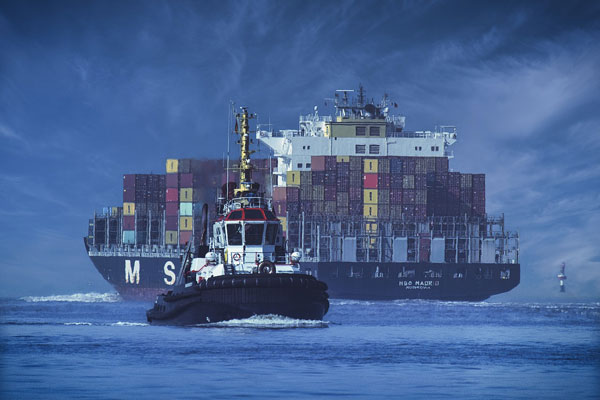Shipping companies are avoiding Suez Canal to avoid attacks from Houthi

[A photo shows container ships traveling through the ocean. Source: Pixabay]
On December 20th, shipping companies announced their decision to reroute their container ships, avoiding the Suez Canal and instead will instead go around southern Africa to steer clear of Houthi rebel attacks.
Houthi rebels, a group aligned with Iran, have been attacking public container ships as a response to Israel’s bombardment of Gaza.
It is revealed that approximately 19,000 ships travel through the Suez Canal every year because it is one of the most efficient key routes for moving goods, particularly fossil fuels.
Opting for the Suez Canal saves container ships from the lengthy journey around southern Africa as the Suez Canal is the most significant route for goods to travel from Asia and the Middle East to Europe.
However, due to Houthi’s attacks, over 100 container ships are now choosing the southern Africa route in order to avoid goods from being damaged; the shipping company Kuehne and Nagel stated that they have identified 103 ships already changing their course, away from the Suez canal.
This diversion disproportionately affects Asian countries when they have to deliver goods to Europe.
adding another 6,000 nautical miles, and extending travel time for an extra three to four weeks.
This will negatively impact the companies located in Asia as the increase in the goods’ lead time could potentially increase the dissatisfaction rate among customers and hence result in a decrease in orders from European customers.
It has been revealed that the container traveling time from South Korea to Italy will increase from 35 days to 65 days, which is an immensely delayed time period for goods to arrive.
The diversion not only negatively affects companies located in Asia and the Middle East, but also oil prices around the world.
As the demand for oil increased due to the container ships having to travel extended miles, the price for oil increased by 1.2%.
Brent crude oil futures revealed that the price was $74 a week earlier; however, the price rose to $80, an increase of $6.
This increase in oil price will have to be afforded by the companies, further exacerbating the trade conditions.
Lastly, the shipping companies revealed that extended shipping will also lead to inefficiencies in using the resources.
As one container ship is used for a much longer time period, there will be less availability of container ships and this can increase the price of ocean freight to transport the goods.
This will impact the exporting or importing companies once more as they will have to afford higher costs in order to sell the goods or buy the goods from other countries.
All in all, the Houthis’ attack on ships traveling through the Suez Canal has caused consequences for many stakeholders.
We hope Houthi will halt its attacks immediately in order to maximize the efficiencies for all different stakeholders: private companies, shipping companies, and others.

- Doyeon Kim / Grade 11
- Cornerstone Collegiate Academy of Seoul

![THE HERALD STUDENT REPORTERS [US]](/assets/images/logo_student_us.png)
![THE HERALD STUDENT REPORTERS [Canada]](/assets/images/logo_student_ca.png)
